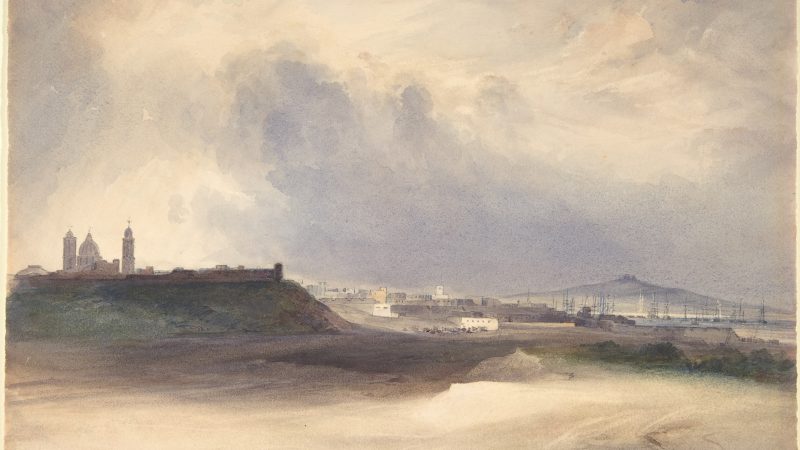By Oscar Rotundo
Not long ago, it was predicted that the next wars would be for water. In today’s Uruguay, a battle is being waged within this war against the commodification and exploitation of water resources, which are being being valued more than life.
The Oriental Republic of Uruguay was the first country in the world to enshrine the right to drinking water as a fundamental right. It is surrounded by the Uruguay River, the Rio de la Plata and the Atlantic Ocean. In the interior it has important rivers such as the Rio Negro, the Merín lagoon and twelve rivers that are more than 200 km long. In addition, the country is based on a part of the Guarani aquifer, the third largest in the world.
Given these data, it is unthinkable that for the first time in history it is announced that Uruguay is days away from running out of water for human consumption.
The neoliberal government of President Luis Lacalle Pou argues that this is due to the intense drought that the region has been experiencing for three years, and to the misuse of this vital resource by the population. But it is clear that the intensive exploitation in the production requires the use of fresh water and the deforestation that impacts the coastal ecosystem, being the responsibles for such a disaster.
Only bottled and sold water remains available – provided by Danone and Coca Cola
The population will lose the possibility of freely consuming drinking water distributed by the public company OSE, but it will be able to consume – sold – bottled water. Behind this business are mainly the Danone Group and Coca-Cola.
The government has announced that it will not cut off the water supply, but warns that it will be of lower quality. What does this mean? According to the words of the Minister of the Environment of Uruguay, Robert Bouvier, “According to the perfect definition of potability, which is based on indicators, this water is not drinkable. … What we say is that water is drinkable and consumable… This is based on other indicators and definitions”. This means there is a project of the OSE to mix the water to which they have access, with that of a sector near the Rio de la Plata that has a high degree of salinity.
Although for the minister this water is “drinkable and consumable”, anyone can understand the risks it would cause to the health of the most vulnerable people such as those who suffer from hypertension, kidney problems or pregnant women. There is also the danger of prolonged exposure to trihalomethanes that are breathed in when showering – a situation that would lead to respiratory and cardiac problems.
The issue is that the population is affected, but large businesses are not touched, such as those of the aforementioned companies. On the contrary, they benefit from the State, since with the announcement of the Water Emergency, they will be exempted from paying taxes to the bottling companies, while the OSE staff and budget continue to be cut, causing the divestment to further deteriorate the existing and poorly maintained infrastructure.
The production model that neoliberalism has imposed
The trade union that brings together the workers of the water management company (OSE) has been denouncing the fall in government investments for some time. The budget for investments in relation to GDP was 0.10 percent during 2021 and 2022. This adjustment has been prolonged with the different governments.
The production model imposed by neoliberalism for several years now has focused on the export of raw materials and the exploitation of natural resources, beyond the consequences in the long run. The Finnish company UPM, which produces pulp, has been established in Uruguay years ago. It has thousands of hectares with eucalyptus plantations and now established a second plant (UPM2) that is estimated to consume 136,500,000 liters from the Río Negro of fresh water per day in next 50 years, returning 107,000,000 liters of contaminated water to the Río Negro. In addition to these two plants, there is also the company Montes del Plata, whose discharges fall into the Río de la Plata.
There is also the installation of a green hydrogen plant in the Guarani aquifer, in what was called the Tambores Project, between the departments of Paysandú and Tacuarembó, made up of the companies Belasay SA, SEG Ingeniería (Uruguay) and Enertrag (Germany). Hydrogen and methanol will be produced here for export to Europe, consuming 600,000 liters of water per day from the aquifer.
The Google company agreed with the government to install a data center in the town of Canelones, with one million computers that will require 7,000,000 liters per day for refrigeration. To this reality, we must add the large soybean and rice plantations and livestock mainly produced for export. All these items consume huge volumes of fresh water.
Coroportations consume ten times more water than humans
The total water consumption of the entire population of the country is between 231 and 274 million m3, but the consumption of corporations is almost 10 times more, 2,586 million m3 per year.
This productive model has made the exploitation of water resources a great business, as evidenced by the 5,091 valid authorizations for the use of water for productive purposes distributed throughout the country, with half of them concentrated in the Santa Lucía River basins, Río Negro and Río de la Plata. Almost half of these authorizations are for irrigation.
Drought is also a consequence of the global production model, extractive and desertifying. Therefore, it is unacceptable to blame the drought for the lack of drinking water when the investments made affect the consumption of millions of liters of fresh water, greater than that of the population, for the sake of the supposed economic growth of the country.
Government in service of business
Faced with this misfortune, which as we see is not “natural”, the response of the business government, in addition to “consuming salt water”, is found in the “Neptune Project” presented by the companies (Saceem, Berkes , Ciemsa and Fast ) in October 2020, under a consortium called “Aguas de Montevideo” and accepted by the government, after various changes and a feasibility study. It will be promoted in a modality in which private companies will be in charge of construction and maintenance, while OSE will be in charge of the operation.
It is a water treatment plant to supply the metropolitan area, with an 81-kilometre adduction pipe and a polder, “artificial hydrological entities”, a kind of freshwater reserve.
One of the peculiarities of this multimillion-dollar venture is that it will be located in the area of Arazatí and Bocas del Cufré, in San José, from where it will take water from the Río de la Plata, which is actually an estuary that presents episodes of salinity. This constitutes a situation that socio-environmental organizations, unions, neighborhood groups and academics already have decried.
The businesses of looting and predatory multinationals not only threaten human life and biodiversity, they also affect the existence of the industry, as colleges of engineers and businessmen in the metallurgical sector are beginning to show, attentive to the damage caused by high levels of salinity and corrosion in appliances for domestic and industrial use such as hot water tanks or water heaters and anything that requires the presence of this vital element.
What is concrete is that the water crisis in Uruguay will be linked to a deeper economic and social crisis and this will deepen the political crisis for which the neoliberal model has no answer.
Cover painting “Approach to Montevideo (Uruguay)”, by Conrad Martens, 1832, Metropolitan Museum of Art, Photo: Wikicommons.









Leave a Reply